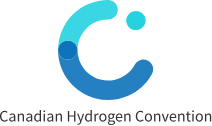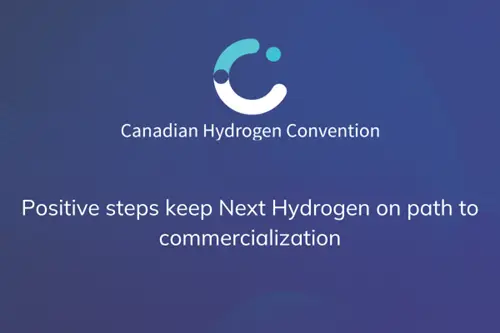-
EXHIBITION
EXHIBITION
The Canadian Hydrogen Convention is the ideal platform gathering government representatives, Indigenous leaders, and sector professionals to showcase, discuss, collaborate, and do business in the North American market, driving the hydrogen industry forward.
Learn more -
STRATEGIC CONFERENCE
STRATEGIC CONFERENCE
The Canadian Hydrogen Convention 2025 is a transformative gathering that will shine a spotlight on the growing demand for hydrogen as a critical component in the global transition to sustainable energy.
Join us as we bring together the decision-makers, brightest minds and biggest players in the hydrogen sector in Canada and internationally. Whether you’re curious about the discovery of natural hydrogen in Canada, business development opportunities, eager to understand new policy shifts, or ready to see cutting-edge tech in action, don’t miss the largest event in Canada that uncovers your next big opportunity.
This isn’t just another conference—it’s where we fuel demand and spark innovation. With a focus on the challenges of scaling up, building out infrastructure, and making hydrogen an economic driver in Canada, the Canadian Hydrogen Convention 2025 is your chance to be part of something big. Let’s make the future cleaner and full of energy!
Learn more -
TECHNICAL CONFERENCE
TECHNICAL CONFERENCE
The Canadian Hydrogen Convention Technical Conference brings together technical experts from around the world to present and discuss the latest hydrogen technologies, processes, and innovations to help companies increase efficiencies, save costs, and achieve net zero.
Learn more -
AWARDS
AWARDS
The Canadian Hydrogen Convention Awards shines a spotlight on excellence in the hydrogen industry here in Canada and around the world. The Awards recognizes and celebrates hydrogen leaders, innovators and trail blazers accomplishments over the last 12 months who have been at the forefront in leadership, innovation, sustainable solutions and promoting the healthy advancement of the hydrogen sector.
Learn more -
SPECIAL FEATURES
SPECIAL FEATURES
As the largest event in Canada showcasing hydrogen as a key enabler to reach net-zero emissions by 2050, the Canadian Hydrogen Convention is the only annual meeting place for energy executives, government officials and Indigenous leaders to convene to build Canada’s low-carbon energy future. This must-attend show will offer a unique perspective for the entire Canadian supply chain to discuss innovations and solutions for low-carbon hydrogen production, storage, utilization, and hydrogen’s future as a key fuel.
Learn more -
SPONSORSHIP
SPONSORSHIP
Sponsorship increases the show experience through multiple channels throughout the exhibition, conferences, and special events. The Canadian Hydrogen Convention provides the ideal platform to showcase your brand to the largest hydrogen audience in Canada. Several opportunities are available to help you achieve your specific objectives and enhance your outreach at this international event.
Learn more -
TRAVEL
TRAVEL
Edmonton is a thriving entrepreneurial city with a strong business sector, attracting skilled talent and offering the infrastructure for economic success. Seize the opportunity to achieve your business goals here!
Learn more -
MEDIA
MEDIA
Our Media & Association Partners benefit from unique access to increase brand visibility, gain valuable insights, connect with industry-leading companies and professionals.
Learn more - EVENT APP





